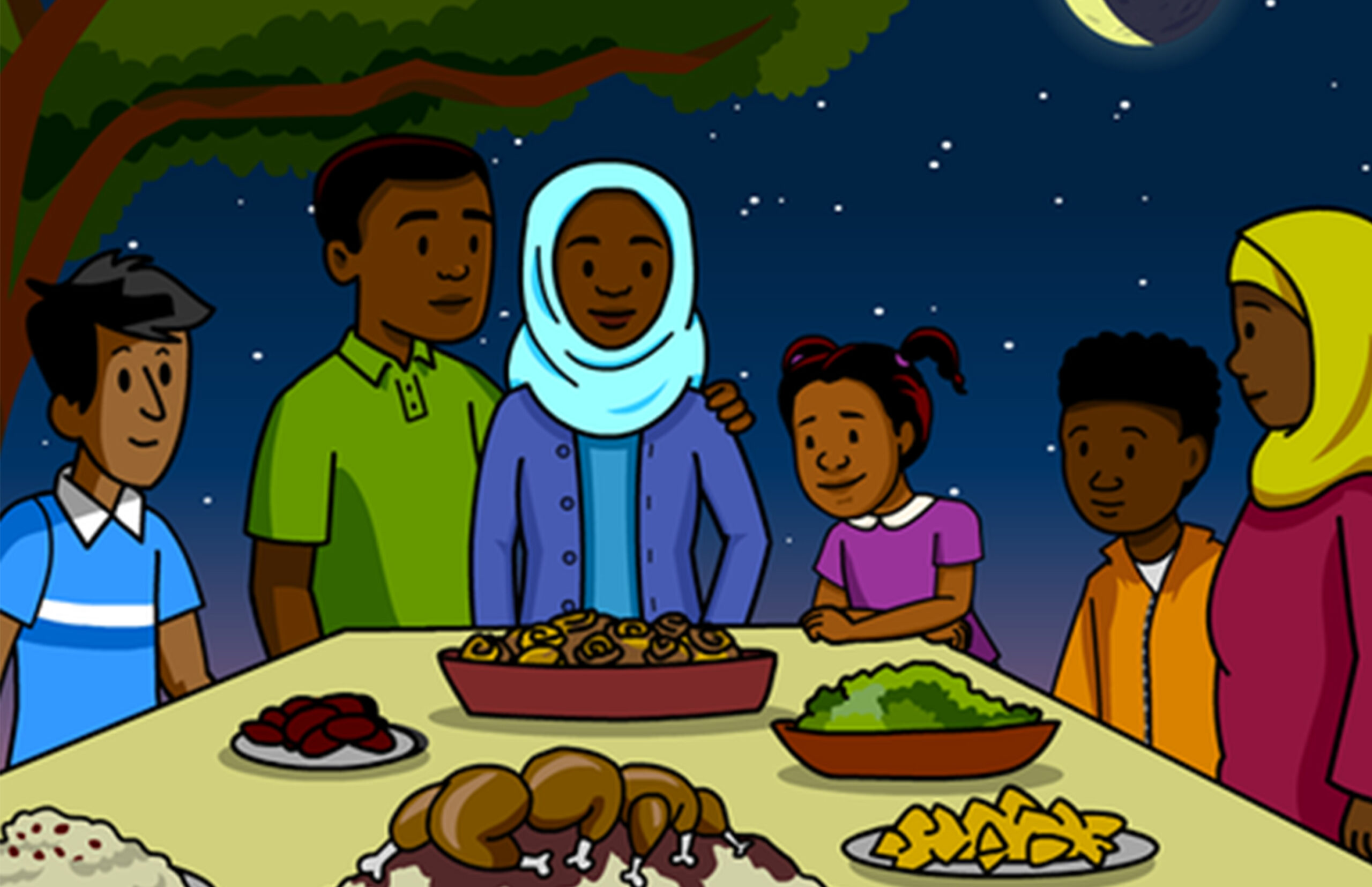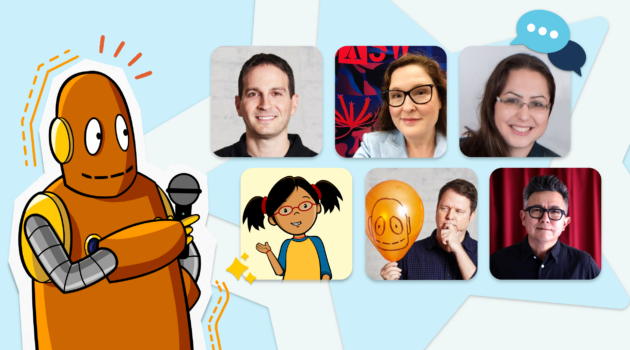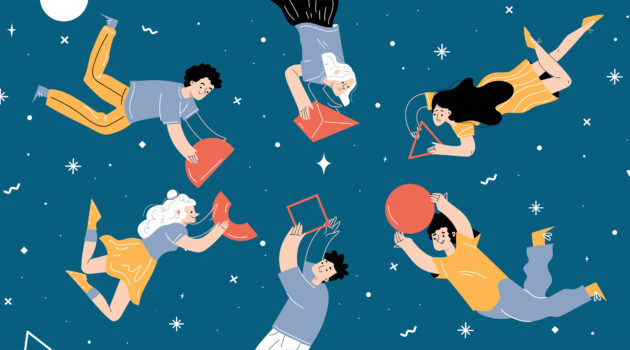Behind the Scenes
Ramadan Through the Years: A Personal Reflection

When I was younger, my dad would drive us to the highest point in our town—the parking lot of my elementary school—to look for the moon. It was something I looked forward to every year. Staring up at the dark sky and waiting for that first glimpse of the crescent moon was always an exciting and mystical experience. I remember feeling a sense of anticipation and wonder, knowing that this moment signaled the start of Ramadan.
When I got older, I realized that this tradition wasn’t unique to our family. It is practiced by many Muslims around the world. The Islamic lunar calendar is based on the sighting of the crescent moon, called hilal, which marks the beginning of each month. This practice has been a part of Islamic tradition for over 1,400 years. The Prophet Muhammad (peace be upon him) emphasized the importance of observing the lunar cycle, and taught his followers to look for the crescent moon.
Ramadan is a month of immense spiritual significance for many Muslims around the world. It is a time of deep reflection, self-improvement, and connection with our faith and community. Ramadan also brings with it a set of core values that are fundamental to Islamic tradition. The Ramadan topic on BrainPOP offers a great introduction to the practices and virtues observed during this month.
Whereas the physical and religious obligations that accompany Ramadan may seem more concrete, the values we cultivate and grow during this month are deeply personal, and they shift throughout the seasons of our lives. As a Muslim woman growing up in the United States, my religious and cultural background has helped me navigate these shifts in personal values over the years. When I first started fasting, I viewed Ramadan primarily as a time of increased discipline, self-control, and prayer. I focused on the physical and religious traditions of the month, such as waking up for the pre-dawn meal (suhoor), breaking our fast in the evening (iftar), and going to the mosque to pray night prayers (taraweeh). I had a community that I grew up with and people I knew I would see year after year. During my childhood in a tight-knit Pakistani-American Muslim community, Ramadan was always a time of communal iftars, late-night prayers, and shared experiences.
Ramadan is a month of immense spiritual significance for many Muslims around the world. It is a time of deep reflection, self-improvement, and connection with our faith and community.
When I moved away from my hometown to attend university, I wasn’t sure what to expect. The first few days of Ramadan were lonely and disorienting. I missed my family and the familiar sounds and smells of home. I found myself longing for the comfort of community and the sense of belonging that I had always taken for granted.
This transition also pushed me to grapple with the complexities of my emotions and how to manage them effectively. Moving away from the town where I felt safe as a Muslim woman in my community, I struggled with my spiritual motivation, sense of identity, belonging, and perceptions of my religious and cultural background. I’m grateful that the Muslim student organization at my university was aware of the challenges many Muslim college students may face during Ramadan, and organized nightly dinners and prayers on campus. As a community, we were able to empathize with each other’s challenges and support one another. Fasting and prayer were still a priority, but moving to a new city pushed me to focus on developing connections and deeper relationships with new people, many of whom are still some of my closest friends today.
This year, I see Ramadan as the ultimate personal bootcamp for building my own emotional intelligence. Ramadan provides a unique opportunity to increase self-awareness and practice mindfulness, which makes me more conscious of and attuned to my thoughts, feelings, and actions and how they impact myself and others. Reflecting on where I am emotionally and spiritually—as well as where I want to be, and how I can be the best version of myself—rekindles my motivation.
Another way Ramadan has helped me develop emotional intelligence is through the act of charity. Muslims are encouraged to give generously during this month, whether through monetary donations or by volunteering their time to help those in need. The act of giving teaches us empathy and compassion towards others, and it helps us develop a deeper understanding of the struggles that others may face.
Finally, Ramadan teaches me the importance of gratitude. Muslims are encouraged to reflect on the blessings they have been given—our health, our families, and our faith—and express gratitude for them. In the process, we may begin to recognize the positive impact that gratitude can have on our emotional well-being and our relationships with others.
Ramadan is a time to embrace my cultural and religious traditions, and share them with my loved ones. It’s a time of renewed hope and community building. Ramadan Mubarak!
Maneeza Dawood, Ph.D. is an assessment and efficacy scientist at BrainPOP and a postdoctoral associate at the Yale Center for Emotional Intelligence.






